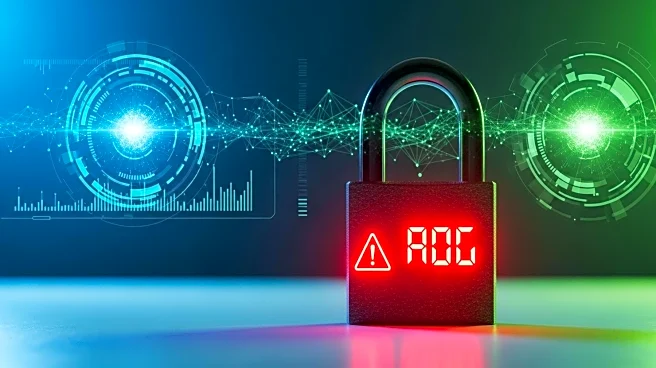What's Happening?
The United Kingdom has experienced a significant rise in major cyberattacks over the past year, according to the National Cyber Security Centre (NCSC). The agency, part of the UK's signals intelligence organization GCHQ, reported handling 429 cyber incidents in the 12 months leading up to August, with nearly half deemed 'nationally significant.' These incidents have impacted central government, essential services, and the UK economy, marking a 50% increase from the previous year. High-profile companies such as Jaguar Land Rover and Marks & Spencer have been targeted, resulting in substantial financial losses and operational disruptions. The UK government has intervened in some cases, providing emergency financial support to affected companies.
Why It's Important?
The surge in cyberattacks poses a significant threat to the UK's economic stability and national security. With major companies facing operational disruptions and financial losses, the broader impact on supply chains and employment is considerable. The government's involvement in providing financial assistance underscores the severity of the situation. Additionally, the increase in cyber incidents highlights vulnerabilities in critical infrastructure and the need for enhanced cybersecurity measures. The threat from foreign entities, particularly from China, Russia, and Iran, further complicates the security landscape, potentially affecting diplomatic relations and national policy.
What's Next?
The UK government and cybersecurity agencies are likely to intensify efforts to bolster defenses against cyber threats. This may include increased investment in cybersecurity infrastructure and collaboration with international partners to address the global nature of cyber threats. Companies may also be encouraged to adopt more robust security protocols to protect against future attacks. The ongoing scrutiny of national security issues, particularly concerning foreign interference, may lead to policy changes aimed at safeguarding democratic institutions and economic interests.
Beyond the Headlines
The rise in cyberattacks raises ethical and legal questions about data privacy and the responsibility of companies to protect consumer information. The involvement of foreign states in cyber espionage activities also highlights the geopolitical dimensions of cybersecurity, potentially influencing international relations and trade policies. Long-term, the increased focus on cybersecurity could drive innovation in technology and create new opportunities for businesses specializing in security solutions.










